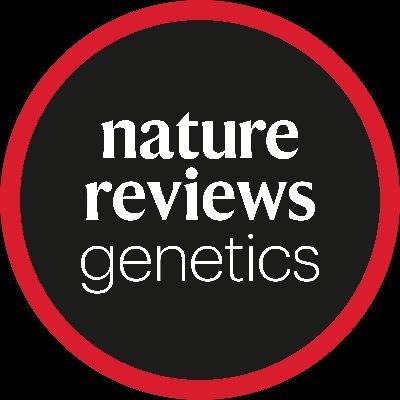
Ron Do
@DoGenetics
Followers
1K
Following
2K
Media
58
Statuses
920
Human Geneticist. Data Scientist. Professor @IcahnMountSinai @BronfmanInst
New York, NY
Joined April 2015
🧵1/ Delighted to announce our new study: Machine learning-based penetrance of genetic variants by @IainSForrest et al. published in @ScienceMagazine! Paper: https://t.co/OLTEJI89PV Press release: https://t.co/tp8aQrgMph
@AIHealthMtSinai @SinaiGenetics
mountsinai.org
1
13
46
New online! Genomics of drug target prioritization for complex diseases https://t.co/C2BZTB0vsD
1
25
99
Genetic analyses of eight complex diseases using predicted continuous representations of disease. A study by @DoGenetics @IcahnMountSinai & others @CellRepMethods #ASHG25
0
2
7
Delighted to share our new research in @NatureComms. @Aine_duffy94 et al. (2025): https://t.co/JSyc6hV1ho “Human genetics can predict drug side effects.” Our SE-GPS framework quantifies this risk and helps inform drug target safety from the start. #Genomics #DrugDiscovery
nature.com
Nature Communications - Here the authors develop a genetic priority score to predict side effects by integrating multiple lines of genetic evidence. By applying this score, they provide evidence of...
0
2
10
🚨“Pathogenic” genetic variant does NOT = guaranteed disease 🚨 Yet, doctors and patients are still left to decide what to do with the label… In our new @NatureGenet perspective, we explain why this is and how we can improve genetic risk interpretation🧵
1
1
6
It took a village! Forever grateful to @DoGenetics Lab @IcahnMountSinai including @DrDanielJordan @OmegaPetrazzini and collaborators @girish_nadkarni @JudyCho7 @WendyKChung. No better way to kick off internal medicine residency @BayviewMedicine @HopkinsBayview @JohnsHopkins 💪
1
2
4
👇🏾 Excellent tweetorial by lead author @iainForrest of our recent @ScienceMagazine paper on machine learning–based penetrance.
Most genetic reports label variants as ✅ “pathogenic” or ❌ “benign.” But what patients really want to know is: what are my chances of getting the disease? 🚨 In our new Science study, we used AI + 1.3M patient records to better answer that…
1
1
8
Grateful for the shoutout @EricTopol - Thank you for spotlighting our work!
Your DNA sequence reveals a rare mutation. Will you get the disease, i.e. penetrance? A new study using machine learning predicts this across 10 common diseases, 1,600 genomic variants @IcahnMountSinai @IcahnInstitute @ScienceMagazine
https://t.co/FXU8PN2vgp
0
0
8
AI + routine labs help clarify genetic risk. @SinaiGenetics modeled 1,600 variants across 10 diseases using 1M+ health records, moving past binary labels. https://t.co/7acY5aujr8
#precisionmedicine #genetics #AIinHealthcare #AIinMedicine @IainSForrest @DoGenetics
0
2
4
Insightful perspective on our ML penetrance paper on penetrance and variant consequences, in @ScienceMagazine nicely written by Harper Raiken and @_amelie_rocks
https://t.co/BfRoMl5KFh
science.org
To get more out of genome sequences, the effects of variants need to be quantified
0
0
2
How can ML models trained on electronic health records revolutionize the way we assess genetic variant penetrance beyond traditional binary disease classifications?@ScienceMagazine @IcahnMountSinai "Machine learning–based penetrance of genetic variants" • Traditional genetic
0
2
6
11/ This approach is scalable and can be applied to many different types of variants and diseases. It demonstrates how integrating ML + EHR + genomics can move us from categorical pathogenicity labels toward more data-driven and quantitative penetrance estimates. /end
0
0
0
10/ Applications include: - improving variant classification - guiding clinical genetics & counseling - prioritizing variants for research - personalized disease risk stratification.
1
0
0
9/ Compared to conventional diagnosis-based penetrance, ML penetrance: - avoids discretization (e.g. 0/0.5/1 for small N=2) - better reflects the disease spectrum - captures clinical context
1
0
0
8/ Key findings of the study include: 1) ML penetrance was highest for pathogenic and loss-of-function variants; 2) ML penetrance estimates provided greater granularity than conventional penetrance methods; 3) ML penetrance correlated with functional assays and clinical outcomes.
1
0
0
7/ ML penetrance has two salient properties that distinguish it from conventional penetrance: 1) incorporates individual clinical context; 2) provides refined, quantitative estimates.
1
0
0
6/ Conventional methods restrict singleton variants to penetrance values of 0 or 1. ML penetrance uses quantitative disease scores to place them anywhere between 0–1, enabling more nuanced risk estimates.
1
0
1
5/ These models generated continuous disease scores, which were then used to estimate “ML penetrance” for 1648 rare variants across 31 disease genes.
1
0
1
4/ We constructed ML models on >1.3M individuals’ electronic health records for 10 diseases and applied them to clinical variants in exome-sequenced cohorts.
1
0
0
3/ Accurate penetrance estimation is crucial for precision medicine but current methods (case vs. control) often misclassify risk due to bias, small sample sizes, or binary definitions of disease.
1
0
0
2/ We use machine learning (ML) + EHR data to refine penetrance estimates for rare variants in autosomal dominant diseases.
1
0
0









